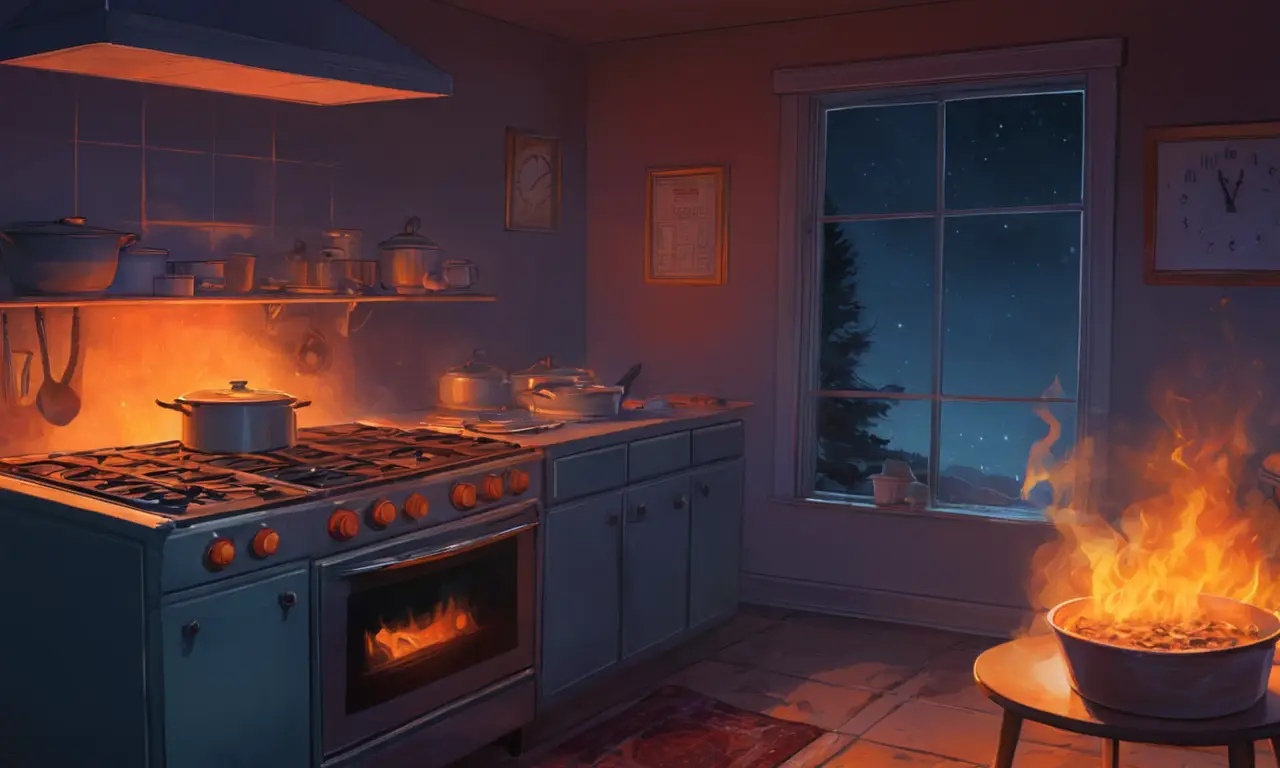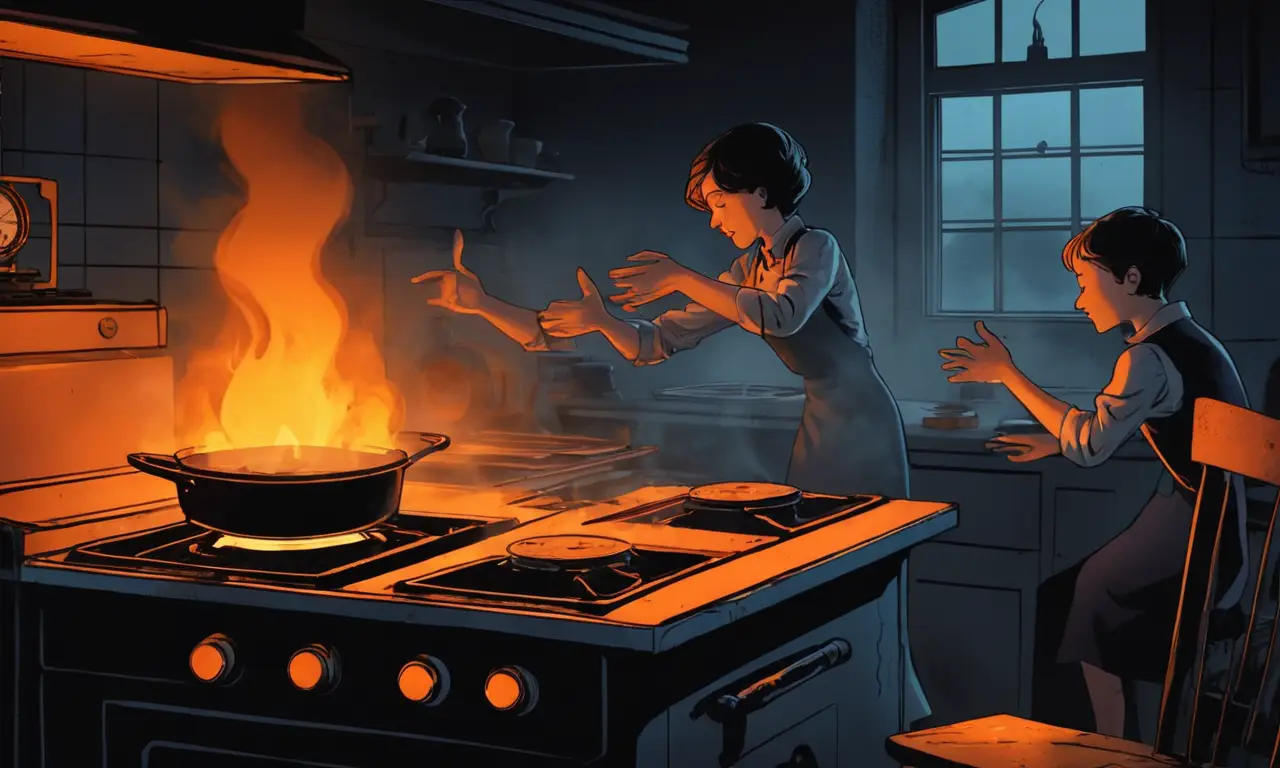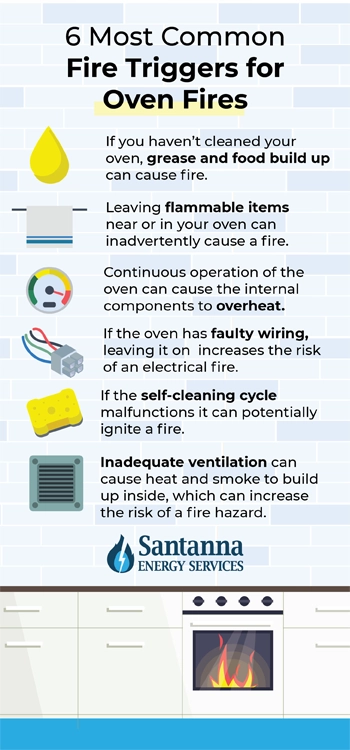Gas stoves are a convenient and popular cooking appliance in many homes. However, it’s crucial to remember that gas stoves can be dangerous if not used properly. One of the most significant risks associated with gas stoves is leaving them on overnight. This seemingly harmless act can have dire consequences, leading to fires, carbon monoxide poisoning, and even fatalities.
This article will delve into the dangers of leaving a gas stove on overnight, outlining the potential hazards and providing essential safety precautions to ensure your home remains a safe haven. We’ll explore the risks of fire and carbon monoxide poisoning, emphasize the importance of turning off burners and pilot lights, and offer practical tips for responsible gas stove usage.
Gas Stove Fire Hazards
Leaving a gas stove on overnight presents a significant fire hazard. A lit burner can easily ignite nearby flammable materials like curtains, towels, or even paper products. The open flame can also cause grease splatters to catch fire, leading to a grease fire that spreads rapidly. Even if the burner is not directly in contact with flammable materials, the heat generated by a gas stove left on all night can raise the temperature of surrounding objects, increasing the risk of ignition.
Furthermore, electrical malfunctions or faulty wiring near a gas stove on all night can also contribute to fire hazards. A short circuit or overloaded outlet could ignite nearby combustible materials, creating a dangerous situation. It’s crucial to ensure that your gas stove is properly installed and maintained to minimize these risks.
Carbon Monoxide Poisoning Risk

Carbon monoxide (CO) is a colorless, odorless, and tasteless gas produced by the incomplete combustion of fuels like natural gas. When a gas stove left on overnight burns inefficiently, it can release significant amounts of CO into your home. Inhaling even small amounts of CO can lead to serious health problems, including headaches, dizziness, nausea, and in severe cases, death.
Prolonged exposure to CO can cause irreversible damage to the brain, heart, and other vital organs. It’s essential to have a working carbon monoxide detector installed on each level of your home, especially near sleeping areas. If you suspect a CO leak, immediately evacuate your home and call emergency services.
Importance of Turning Off Burners and Pilot Lights
Always turn off all burners and pilot lights on your gas stove after use. This simple step can prevent fires, reduce the risk of carbon monoxide poisoning, and conserve energy.
Make it a habit to check that both the knobs for the burners and the pilot light are turned off before leaving your kitchen or going to bed. Even if you’re only stepping away for a short period, it’s best practice to turn off the stove completely.
Never Leave a Gas Stove Unattended

Never leave a gas stove on overnight or unattended for any extended period. This includes leaving the stove on while you are cooking, cleaning, or performing other tasks in your home.
Always supervise children and pets around gas stoves, as they may accidentally turn on burners or play with knobs. Establish clear rules about stove usage and ensure that everyone in your household understands the importance of never leaving a gas stove on overnight.
Safety Precautions for Gas Stoves
In addition to turning off burners and pilot lights after use and never leaving a gas stove unattended, follow these safety precautions:
Proper Ventilation
Ensure adequate ventilation when using your gas stove. Open windows or turn on exhaust fans to prevent the buildup of CO and other fumes.
Regular Maintenance
Have your gas stove professionally inspected and serviced annually. This will help identify any potential issues, such as faulty burners or leaks, before they become dangerous.
Fire Extinguisher
Keep a fire extinguisher readily accessible in your kitchen. In case of a grease fire or other cooking-related emergency, know how to use the extinguisher properly.
Conclusion
Leaving a gas stove on overnight is a serious safety hazard that can have devastating consequences. By understanding the risks associated with gas stoves and following these essential safety precautions, you can protect your home and loved ones from potential harm. Always remember to turn off burners and pilot lights after use, never leave a gas stove unattended, and ensure proper ventilation when cooking. By prioritizing gas stove safety, you can enjoy the convenience of this appliance while minimizing the risks involved.



